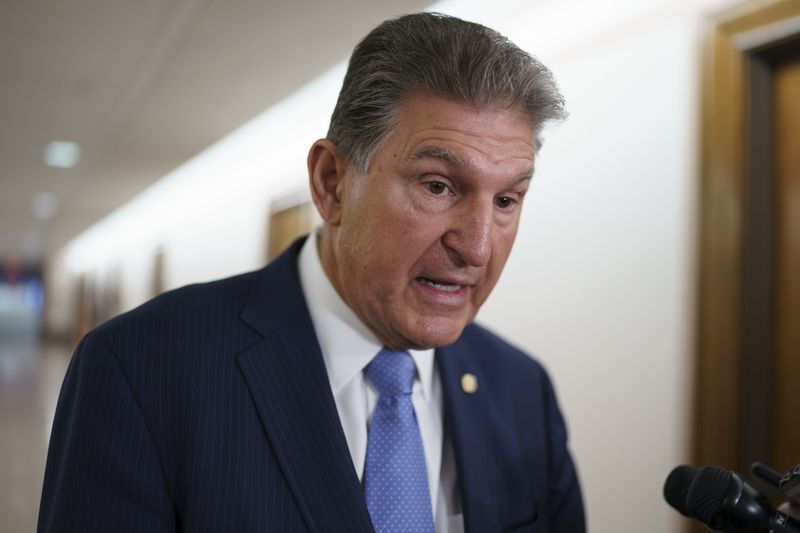 Sen. Joe Manchin
(D-W.V.), the chair of the Senate energy committee, has released the
text of his Energy Infrastructure
Act,
which will undergo committee markup tomorrow.
Sen. Joe Manchin
(D-W.V.), the chair of the Senate energy committee, has released the
text of his Energy Infrastructure
Act,
which will undergo committee markup tomorrow.
An analysis by Friends of the Earth finds only $410 million in funding for renewable wind, solar, geothermal and tidal energy but nearly $30 billion for non-renewable energy programs.
Even the investments in storage and energy efficiency are less than half of spending in polluting energy.
The legislation proposes to make $95 billion in infrastructure investments mainly concentrated in the energy sector. But a close look at exactly where the money is going to go reveals an undeniable bet on dirty energy from the 20th century over clean energy from the 21st. In fact, the bill authorizes $28.8 billion in nuclear, carbon capture and dirty hydrogen over only $410 million in direct authorizations for wind, solar, geothermal and tidal. That’s a ratio of dirty to renewables of over 70-to-1. Even when combining the renewable provisions with the bill’s meager storage and efficiency programs, Manchin still proposes spending twice as much on dirty than he does on clean.
Most of the language for the carbon capture text was taken from the SCALE (Storing CO2 and Lowering Emissions) Act from Sen. Christopher Coons (D-Del.).
The nuclear provisions were drawn from the American Nuclear Infrastructure Act from Sen. John Barrasso (R-Wyo.).
The fossil & polluting energy provisions include:
- $12.6 billion for carbon capture projects, including financing for carbon-dioxide pipelines used for enhanced oil recovery to extend the life of oil wells.
- $6 billion for subsidy payments to the nuclear industry to extend the lifetime of aging plants past economic viability.
- $7 billion in research and development from hydrogen programs; 95 percent of hydrogen production is from fracked gas.
- $1.9 billion in subsidies for commercial logging on public lands
On the storage and energy-efficiency side, provisions include:
- $6 billion for battery production: minerals mining, processing, manufacturing, and recycling
- $3.5 billion for the low-income energy efficiency efforts under the Weather Assistance Program
In addition, there is a further giveaway to the coal industry worth hundreds of millions of dollars in the text: a 20% cut to the Abandoned Mine Land fee paid by the coal industry.
Senior ExxonMobil lobbyist Keith McCoy revealed to a journalist posing as a corporate recruiter that Manchin holds weekly calls with Exxon. He named Coons and Barrasso as two other “crucial” allies to the oil giant’s agenda.